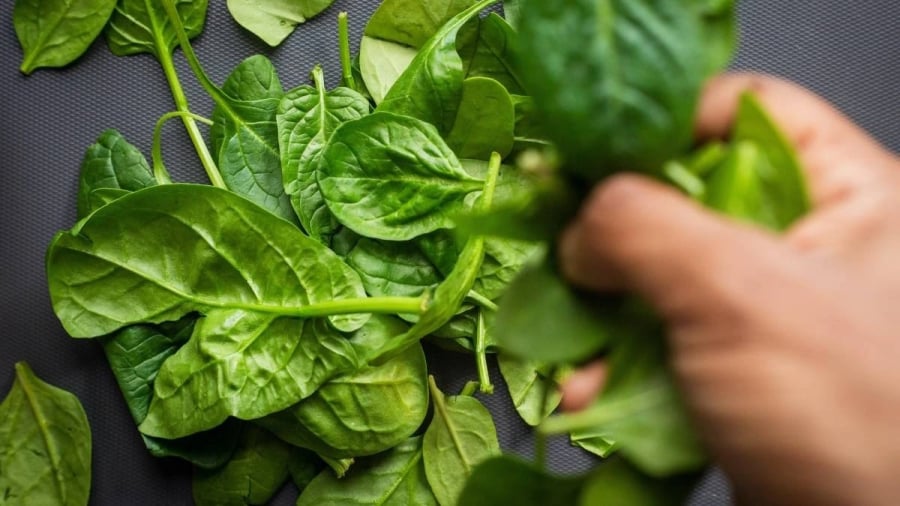Sapa is a place I frequently visit every summer, and one of the dishes that always leaves a lasting impression is the soup made with minced meat and spinach. With every bite, I silently thank my mother for teaching me how to cook this dish since childhood. Spinach not only adds a delightful flavor to the dish but also offers a plethora of health benefits, from aiding in blood production and stabilizing blood pressure to preventing cancer.
However, not many people are aware that this flavorful vegetable can be harmful if not consumed properly. In this article, I will share everything you need to know about spinach, from its amazing benefits to important precautions.
Spinach: A Beloved “Superfood”
According to nutrition experts, spinach is one of the richest sources of iron among green leafy vegetables. This vegetable is especially beneficial for women of childbearing age and the elderly, who often have higher iron requirements.
Spinach not only boosts blood health but also promotes healthy skin and overall well-being, especially during hot summer days that can be exhausting, as shared by the expert.
Just half a cup of cooked spinach provides 3.2 milligrams of iron, meeting 40% of the daily iron needs for men and postmenopausal women, and 18% for women of childbearing age.
In addition to its high iron content, spinach is an ideal choice for those watching their weight. With only 21 calories per serving, this vegetable provides sufficient protein and fiber without the worry of extra pounds. Spinach is also a good source of potassium, magnesium, and calcium, which are crucial for maintaining stable blood pressure and preventing cardiovascular diseases.

The Amazing Cancer-Fighting Nutrients
According to a study published in the Journal of Cancer Biology in the Asia Pacific, the vitamins C and E found in spinach possess strong antioxidant properties. This helps protect cells from the damaging effects of free radicals, which are a primary cause of cancer. Additionally, spinach contains folate, an essential nutrient that supports cell division. Individuals who obtain adequate folate from their diet tend to have a significantly lower risk of colorectal cancer.
Furthermore, the presence of magnesium and vitamins A and B6 in spinach boosts the immune system and reduces inflammation, which are key factors in preventing cancer and various other health conditions.
Precautions to Keep in Mind When Consuming Spinach
Despite its impressive benefits, spinach may not be suitable for everyone. According to a nutritionist at Hanoi University Hospital, spinach contains oxalates, which are anti-nutrients that can interfere with the absorption of calcium and magnesium. This is particularly important for individuals at risk of kidney stones. To minimize the impact of oxalates, you can blanch or boil spinach before cooking or simply increase your daily water intake.
Additionally, due to its high vitamin K content, which is essential for blood clotting, individuals taking blood-thinning medications should consume spinach with caution. Sudden changes in vitamin K intake may affect the medication’s effectiveness and increase the risk of blood clots.
For individuals with gout, spinach consumption should also be approached with caution. While spinach does not increase the risk of gout attacks, its purine content can elevate uric acid levels in the blood if consumed in excessive amounts.

Delicious and Easy Spinach Recipes
Spinach is not only nutritious but also incredibly versatile in the kitchen. One of my favorite dishes is a spinach salad with avocado and walnuts, providing a refreshing and fiber-rich meal. Another classic is the hearty soup made with minced meat and spinach, a familiar comfort food that never fails to satisfy.
For a creative twist, try blending spinach with banana and apple for a nutritious smoothie or whip up a spinach omelet for a quick and healthy breakfast. These dishes not only taste delicious but also ensure you get the most out of this superfood.
Conclusion
Spinach truly deserves its reputation as a “superfood of the summer,” offering an array of health benefits. However, as with everything in life, moderation and individual considerations are key. Listen to your body and incorporate spinach into your diet wisely to reap its maximum benefits.































